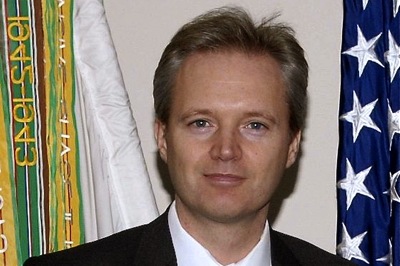
Swedish Prime Minister Fredrik Reinfeldt has demanded the resignation of Defence Minister Sten Tolgfors (photo) after weeks of controversy over an arms deal cut in secret with Saudi Arabia.
In early March, Sweden’s national publicly funded Sveriges Radio had made substantiated revelations about the involvement of the Defence Minister in a secret project to build a weapons factory in Saudi Arabia, including the construction of 35 buildings for the development of advanced weapons of points, particularly in the field of anti-tank missiles and torpedoes.
The operation, codenamed Project Simoom, involved the Swedish Defence Research Agency (Totalförsvarets Forskningsinstitut, or FOI), which created a front company to hide its role and that of the government.
Last week, the Swedish court opened a preliminary investigation into this matter, after the FOI Director-General Jan-Olof Lind had personally reported a "suspicion of a crime" to the prosecutor.
Indeed, according to Swedish law, any military export is subject to review by the independent Agency for Non-proliferation and Export Controls (ISP) which had evidently been kept in the dark about the project.
Sweden has already sold weapons to Riyadh legally, but according to the classified documents obtained by the national radio, "Project Simoom pushes the boundaries of what is allowed by the Swedish authorities" considering that it is "aiding a dictatorial regime."
Saudi Arabia is a private legal entity owned by the al-Saud family. It is an absolute monarchy where the king cumulates all the legislative, executive and judicial powers and where he himself fulfills the functions of Head of State and Prime Minister. The Kingdom does not have a public budget, but is administered by the monarch as his private property with no accountability.
Although officially advocating a policy of non-alignment and "non-participation in military alliances," Sweden has a partnership with NATO and is involved in "peace and security" operations. At the urging of Sten Tolgfors and Atlanticist foreign minister Carl Bildt, the kingdom had participated in Operation Unified Protector imposing the no-fly zone that paved the way for the attack on Libya.
In 2011, the main arms suppliers to Saudi Arabia were the United Kingdom ($ 411 million, according to SIPRI), the United States (384 million) and France (182 million); three states that turn a blind eye to the nature of the political system imposed by their privileged client.























Stay In Touch
Follow us on social networks
Subscribe to weekly newsletter